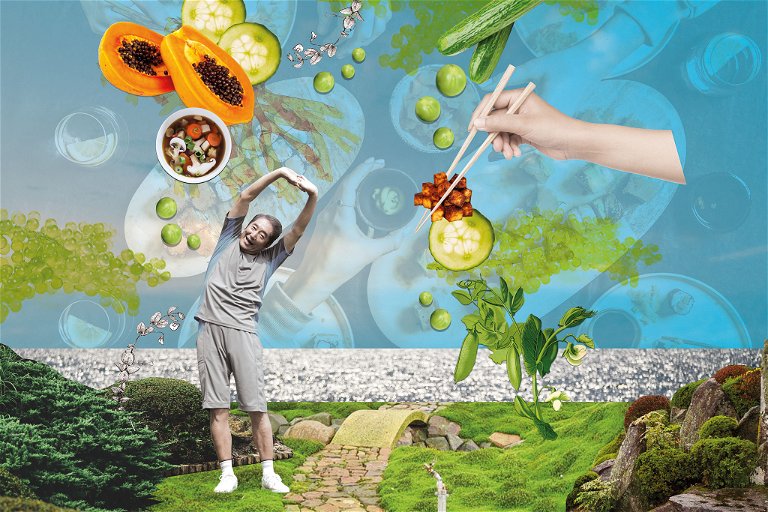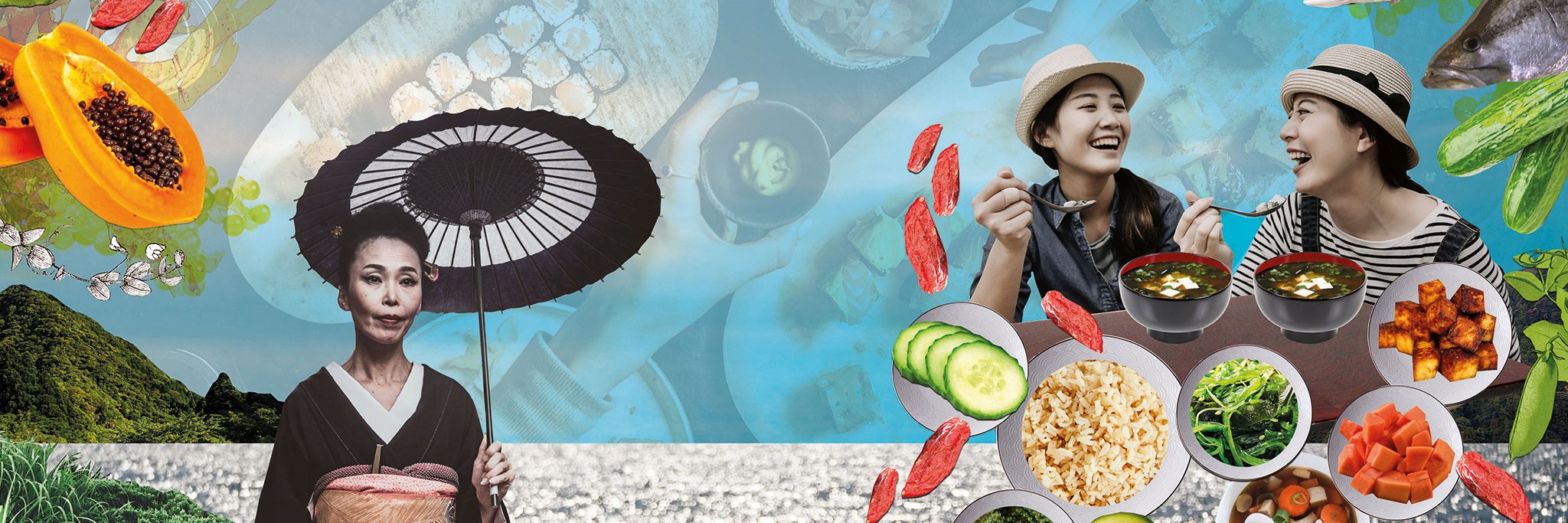Islands of centenarians: why life expectancy is so high in Japan
People around the world are getting older. Japan has the highest proportion of centenarians in the world - and it is gradually increasing. What is different there and what factors promote a long and healthy life?
Tomiko Itooka is 115 years old. This makes her the oldest person in Japan at the moment, putting her in second place in the global rankings behind Spain's Maria Branyas, who is one year ahead of her. Because women live longer on average than men, they also dominate the list of people who have lived the longest or have ever lived.
The current top 50 centenarians include 16 Japanese women and only one man - from Venezuela. With over 90,000 centenarians out of a population of 126 million, Japan not only has the highest density of "methuselahs" but its current life expectancy at birth of 84 years is also above the OECD average, albeit by only three years (and the same as in Switzerland).
Okinawa, Japan's southernmost prefecture, is said to be a hotspot for longevity. The archipelago is one of the five regions on earth where people live several years longer than the rest, and without any major civilisation-related health problems such as obesity, cancer, diabetes or heart disease. Other "Blue Zones" include Sardinia, Ikaria in Greece, the Nicoya Peninsula in Costa Rica and the Seventh-day Adventists in Loma Linda, east of Los Angeles.
If the list of known oldest Japanese on Wikipedia is to be believed, there are people in all prefectures who live to be over 110 years old, and only one in ten comes from Okinawa. The factors for the "longevity zones" described by the researchers led by Dan Buettner therefore also appear to be widespread in Japan in the north. These can be divided into four categories.
Always active
Firstly: exercise - moderate but regular. The oldest people are not necessarily known for triathlons or World Cup victories, but rather for living in an environment that keeps them going. They walk, cultivate a small garden and do housework. They simply have a busy everyday life.

Sense and deceleration
Secondly, the mental constitution - giving your life meaning and learning to deal with stress well. "Ikigai" is what the people of Okinawa call "the plan for life". They know why they get up in the morning. In addition, the longest-lived people have routines to reduce stress. While they take a siesta in Greece, they have happy hour in Sardinia, and in Okinawa they remember their ancestors for a few moments. Escaping distress helps to prevent chronic inflammation, which is involved in almost all age-related diseases of civilisation.
Family and friends
Thirdly, maintain a solid social network - take care of the family and get involved in social life, if necessary also experience spiritual, religious ties. Those on Okinawa have their "moais". This is a circle of friends of about five people who "commit" to each other for life. They not only give each other support and strength in difficult times, they also influence each other's lifestyles and together form life-affirming, healthy behavioural patterns. The motto: stay cheerful and avoid people you don't like as much as possible.
The 80 percent rule
Fourthly, the diet - traditional eating habits with a high proportion of vegetables and especially pulses. Whether beans, lentils or peas as a snack, salad, miso soup, tofu or tempeh - pulses form an integral part of the daily diet. They are inexpensive, filling, and regulate blood sugar and blood fat levels and provide high-quality protein, especially in combination with cereals. Their high proportion of resistant starch is first metabolised by intestinal bacteria in the large intestine to form short-chain fatty acids. These promote intestinal health and inhibit chronic inflammatory processes, which are associated with gastrointestinal problems as well as obesity and type 2 diabetes. Meat, especially pork, on the other hand, only ends up on their plates about once a week.
The focus is on regional diversity, such as seaweed, papaya or goya, a bitter melon, as well as fish. In addition, the people of Okinawa follow the Confucian mantra "Hara hachi bu". They stop eating when their stomach is about 80 percent full. Translated, you could say: if you feel like there's still room for dessert, then it's a good time for the last bite. These regular 20 percent savings are crucial for maintaining a healthy body weight. The fact that keeping food energy in check has a life-prolonging effect is also known from studies with threadworms, which have also been used to test intermittent fasting. It is fitting that the people who live the longest tend to eat dinner early and then not too much. Moderation is also the keyword for alcohol consumption: regularly, but in smaller quantities, with food and/or with friends.
Don't miss out!
Sign up now for our newsletter.
